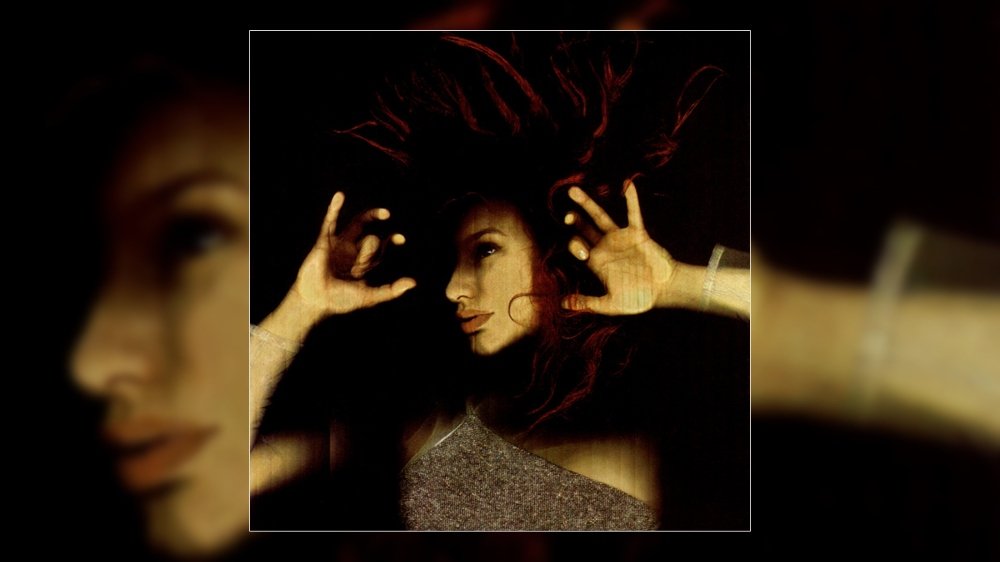Happy 20th Anniversary to Tori Amos’ fourth studio album From the Choirgirl Hotel, originally released May 5, 1998.
As an Amazon affiliate partner, Albumism earns commissions from qualifying purchases.
Timeless, confessional, empowered—these three adjectives succinctly summarized Little Earthquakes (1992), the debut of the magnetic pianist, vocalist and songwriter Tori Amos. Wielding her instrument of choice with an unrepentant passion and a lyrical sense of purpose, she struck a collective chord. By Amos' third album Boys for Pele (1996), she was ready to set fire to the “pretty redhead with her piano” designation lazily assigned to her by (mostly male) rock music pundits in an attempt at jaundiced classification.
Boys for Pele, a delightfully difficult and dark recording, stood as a testament to her momentous playing, writing and producing abilities. Further, the LP deepened Amos' classical and modern musical appetites as specifically evidenced by Boys for Pele's third single “Professional Widow,” which was given a new face via disc jockeys Armand van Helden and Marc Kinchen. Their remix gained Amos entry into a then-unvisited sonic realm that piqued her curiosity about dance music and, more broadly, electronica.
These genres were now to be the musical costuming for her fourth album, From the Choirgirl Hotel.
By the record's early steps, Amos had already entered into a romantic partnership with her soon-to-be husband, sound engineer Mark Hawley. However, the ebon ethos of Boys for Pele lingered, transporting itself onto From the Choirgirl Hotel. Whereas her third long player reveled in its rage and power, its follow-up was informed by the nuanced gravitas of Amos' very personal struggle to conceive.
In Amos' own words from her A Piano: The Collection (2006) retrospective, she recalled the impetus of the recording, confiding, “Choirgirl is about loss and emptiness. This was a very dark time for me. I kept seeing all these children that had been separated from their mother. They seemed to be coming through the door with the songs ushering them in. I saw the songs shadowed by these children, and it appeared to me as this hotel with this choir ushering themselves in and out through doorless entrances. Throughout this time I would lay on the sand, on the earth, and I would cry to the Great Mother for the loss of this Being.”
Miscarriages are painful and taboo. That Amos could transform her grief into art is startlingly impressive. Armed with a refreshed aural palette, adorned with a miscellany of metallic dance and electronica colors, she sketches story songs capturing her experiences directly and allegorically.
Excluding the “traditional/classical Tori” slant of “Jackie's Strength” and the glowering rock of “She's Your Cocaine,” the remaining ten compositions have the piano (or keyboard) operating as either the heart of or the dais for more extroverted arrangements. The former facet saw Amos' aptitude anchor the nebulous entries “Black-Dove (January)” and “Liquid Diamonds,” with the piano's natural gravity contrasting to the artificial fluidity of the electronic motifs beautifully. The latter facet sees Amos and her instrument perched atop a lofty stage of funky electro-psychedelia with “Cruel” and “Raspberry Swirl.”
One particular tool at Amos' disposal that is occasionally overlooked due to the typical piano and production prowess on display on her recordings is her voice. All throughout From the Choirgirl Hotel, the character performances are gripping and satisfying, whether she's a woman that's broken but defiant (“Spark”), an otherworldly siren (“iieee,” "Hotel") or even a sizzling “after hours” chanteuse (“Playboy Mommy”)—they all are believable under Amos' command.
Released in the spring of 1998, From the Choirgirl Hotel was affectionately embraced and championed by taste makers and fans alike. Commercially, From the Choirgirl Hotel managed to maintain the platinum position of its predecessor and fend off the combative administrative heads of Atlantic Records. The effort produced three singles in “Spark,” “Jackie's Strength” and the double A-side “Cruel/Raspberry Swirl.” The three selections saw only modest success on general radio formats, but triumphed in the dance market where Amos had now carved out her own special niche.
Fortune did finally smile upon Amos and Hawley with the birth of their daughter in 2000, but it speaks to Amos' reputation as an unyielding creative presence that she could bequeath such elegance to the adversity she faced. As its own entity, From the Choirgirl Hotel is an affirmation of Tori Amos not just as an excellent singer, writer or musician, but as a musical elemental in constant motion.
As an Amazon affiliate partner, Albumism earns commissions from qualifying purchases.
LISTEN:

